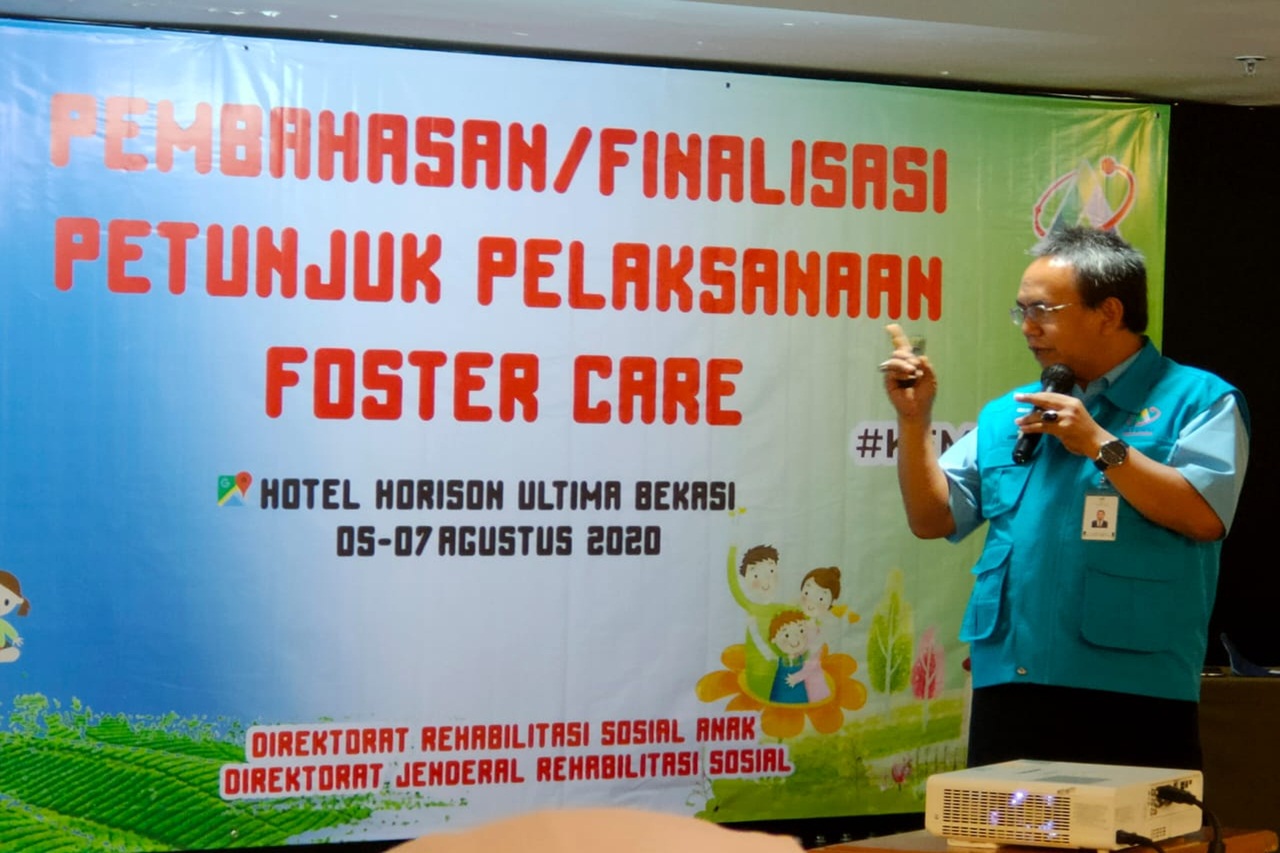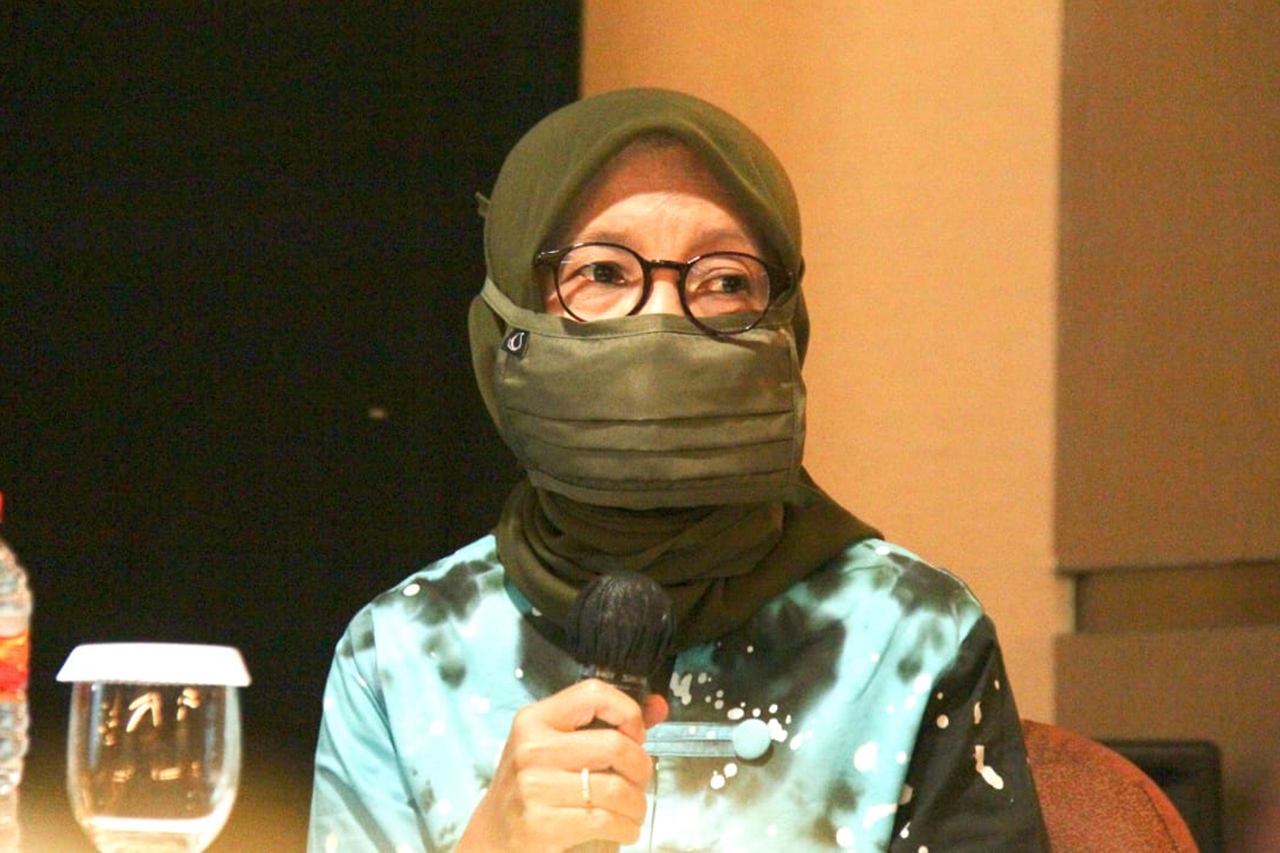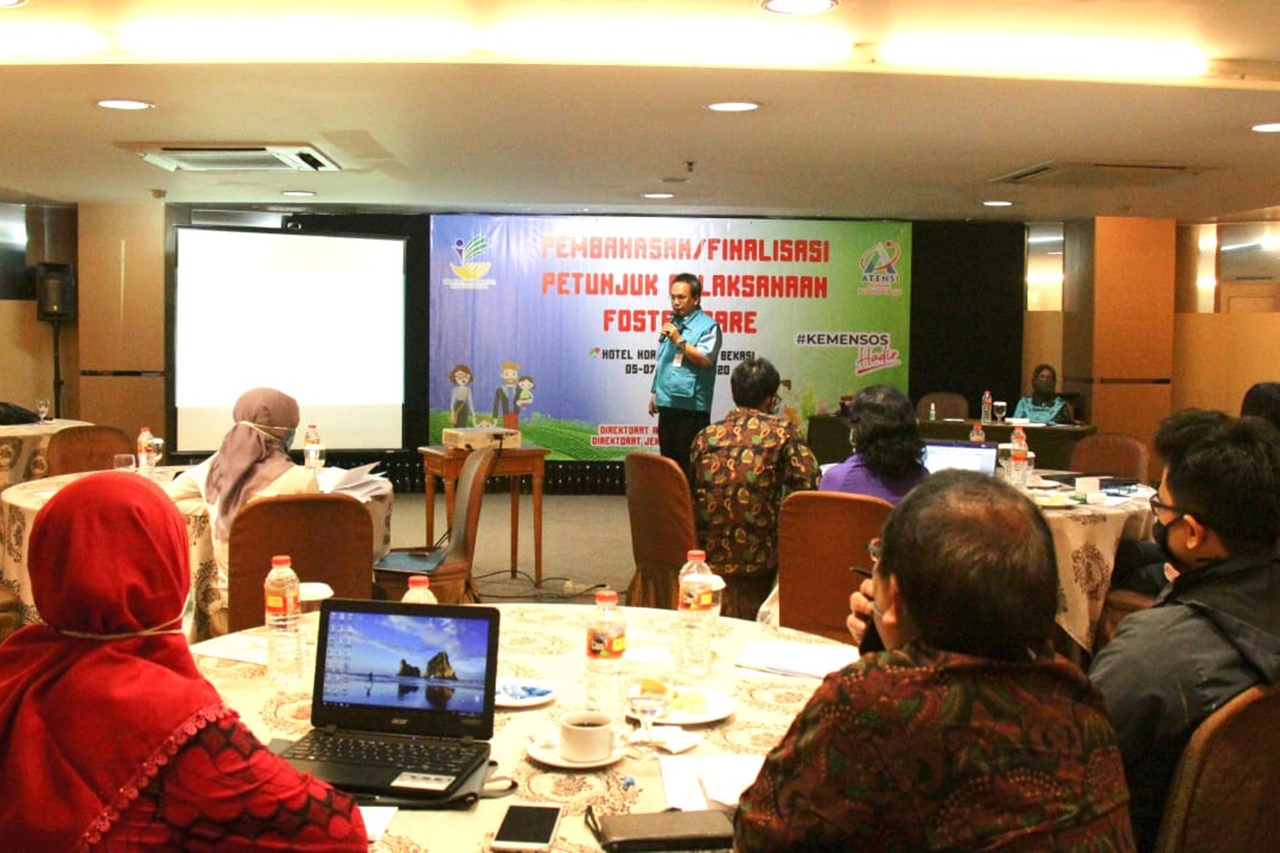BEKASI (August 6, 2020) - The Director General of Social Rehabilitation accompanied by the Director of Children's Social Rehabilitation gave a speech during the Discussion on Implementation Guidelines Foster Care at the Horison Hotel Bekasi. This activity, which was held from 5-7 August 2020, was an effort to follow up on the Implementing Regulation of Government Regulation No. 44 of 2017 onthe Implementation of Child Care and the Regulation of the Minister of Social Affairs of the Republic of Indonesia No. 1 of 2020 on Implementing Regulations of Government Regulation No. 44 of 2017 on the Implementation of Child Care.
The Director General of Social Rehabilitation, Harry Hikmat explained that the term child care is equivalent to the term foster care because there is no appropriate nomenclature in Indonesian. "The term foster care has been widely used by other countries for child care by foster parents. Previously,foster care has grown within the scope of society," explained Harry.
Harry added, as an example, Muhammadiyah had implemented a program foster care in 1912 because of its concern to see that many children were neglected due to war victims, thus establishing an orphanage to accommodate abandoned children and to find foster parents through the established process.
The Director General of Social Rehabilitation invites to carry out a national launch for the implementation of foster care, so that these programs and regulations can be known to the public who want to take care of children and register children who have been cared for by foster families. "Launching Foster Care must be equipped with a description of children who need replacement family care. In the future, we hope to use instruments from BPS, to record the number of children in Indonesia who live with their biological parents, extended family and neighbors," said Harry .
Parenting through Foster Care is an effort to meet the needs for love, attachment, safety, and well-being that are permanent and in the best interests of the child. "Balai and Loka as well as Child Welfare Institutions (LKSA) have the capacity and potential to develop the implementation of foster care as an agent of change that can respond to providing alternative care process services for children who need replacement families," said Harry.
"Attachment is intangible, the child is pure, he chooses himself who he wants to be with and what to do, what the Social Service and Child Care Institution need to pay attention to is whether the attachment of prospective foster children and foster parents has been established," added Harry to the meeting participants.
Director of Children's Social Rehabilitation, Kanya Eka Santi explained that this activity aims to complete guidelines for foster care which will become directions for implementers foster care in the regions.
"There is a need for implementing guidelines from experiences in the field by implementing trials, foster care such as how to process children who have been cared for by foster families (existing foster care) and the discovery of children who have been cared for by foster families of different religions with foster children. , "explained Kanya.
Kanya added, then technically arranged the care for children who were neglected abroad. "Furthermore, it is hoped that all parties can ensure that foster care runs well and can develop throughout the region," said Kanya.
Implementation Guidelines of Foster Care is very necessary for the Social Service, Child Care Institutions and Foster Parents as implementers in the field. This activity involved participants from the Social Service, Social Worker Service Unit (Sakti Peksos) and Child Welfare Institutions (LKSA) as the implementers of trial foster care the 2019.
 English
English
 Bahasa
Bahasa



